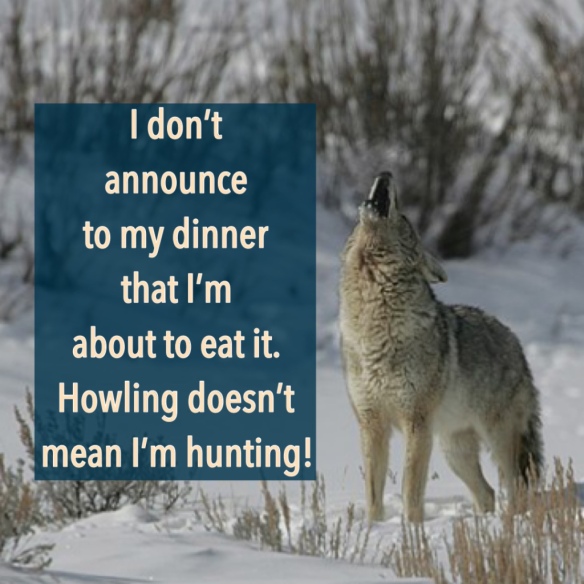Do coyotes howl when hunting?
Many people panic when they hear the howls and yips of their coyote neighbors. They often believe these sounds mean that they, or their pets, are in danger.
Although it’s always best to keep small pets properly contained or supervised, a howling coyote isn’t trying to announce that it’s about to attack you or anyone else.
Coyotes are around us all the time without causing us any harm. Whether you hear them or not, they are present in our neighborhoods and parks. When you hear them howl, it isn’t because they’re searching for food—they’ve been there all along, and you just happened to notice them singing.
Coyotes howl and yip to communicate with one another. A coyote may howl to bond with family, meet up with a friend or relative, or warn territorial rivals that this particular territory is taken. Like most other predators, coyotes hunt silently by stalking their prey.
Coyotes live in small family groups, typically containing just two to five individuals, but use auditory illusions to make themselves sound like a large, intimidating pack. Just one mated pair might sound like a dozen or more animals! This is one of the reasons that people are often alarmed by their calls.
Enjoy listening to your coyote neighbors as they communicate with each other.


Coyote howls have always given me shivers and for good reason. Neighbours haven’t been able to leave any animals out of the barn at night for years now, regardless of the season, as any animal small enough, be it cat or calf is fair game. It’ll be ten years this coming March that we lost our kitten not twenty yards from the house (and took me over two years before I finally found his little skull under the low-hanging branches of the big pine tree out front; and much older GingerCat (who had also been out there at the time) wouldn’t go outside for well over a year afterward… And even then never more than a short dash away from the house:/)
Never assume it’s safe when coyotes lose their innate fear of humans.
You are right, Deb. Coyotes have adapted to live around people. The coyotes at our farm hunt a large territory where mice and rabbits are abundant, so their behavior is very different from coyotes that live in more human-populated areas. Although primarily nocturnal, we sometimes heard and saw them during the day. Where they live and hunt around people, they are strictly nocturnal. Being opportunistic creatures, they will kill cats and small dogs. Although seldom caught in the act, I believe they are responsible for a lot of the disappearances of pets left out at night.
I think it depends a lot on whether populations are squeezed and how plentiful (and unprotected:/) the food sources… We were rural too with lots of natural prey; but sadly, as the numbers of coyote rose, their natural reticence about human habitation morfed from maintaining a respectful distance to ‘visions of easy pickings’ and at dusk farmyards became the a la carte menu. Unlimited nerve, with zero respect in a matter of a couple of decades.
Like other habitat generalists (fox, deer, raccoons, possums, etc.) that can live almost anywhere, coyotes have adapted to live around people. They have learned to hunt only at night and to avoid people, so we don’t even know they’re around.
Good article. I always thought of howling as a way of communicating. Sounds like it is.
Just like dogs, it probably serves many purposes.